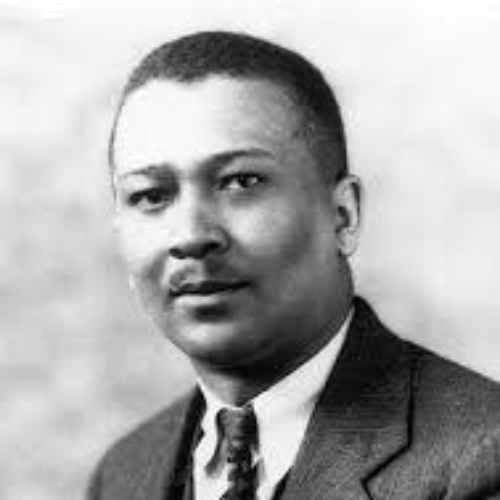
Dr. Francis Cecil Sumner
The first Black person to earn a Ph.D. in psychology, Francis Cecil Sumner spent his career working to elevate African-American education through more funding and more teaching of Black history.
The first Black person to receive a Ph.D in psychology, Francis Sumner was born in Arkansas in 1895. His parents worried about the quality of the education young Francis was receiving at his local elementary school, and so they taught him at home from what books they had available. When he applied to Lincoln College, a historically black university now known as Lincoln University, his application cited ‘private instruction in secondary subjects by father’ as he did not have a high school diploma.
Dr. Sumner passed the entrance exam and began his schooling at Lincoln at the age of 15. At 19, he graduated as valedictorian with a degree in philosophy. He moved on to Clark University for a second bachelor’s degree, where he became part of a mentor-mentee relationship with then-President of Clark, the pioneering psychologist G. Stanley Hall.
Sumner was drafted into the US military in 1918 and served in Germany in World War I before returning to Clark to complete his doctorate in 1920. Then, as now, psychological science was very Eurocentric, and Dr. Sumner focused on dismantling the racism and bias influenced by that Eurocentrism. Specifically, the studies at the time that purported to show intellectual inferiority in African-Americans. He tackled inequality in the judicial system and unequal outcomes in mental health between people of different races.
In 1939, his application for membership in the Southern Society for Philosophy and Psychology was rejected, after the SSPP changed its bylaws for the express purpose of excluding a Black member. Other members of the society threatened to resign if Dr. Sumner was not accepted, and his application was eventually improved, with the leadership of the society blaming a secretary.
From 1928 until his death, Dr. Sumner served as the chair of the psychology department at Howard University, a historically Black research university in Washington D.C. While there, he taught many Black psychology students including Kenneth Bancroft Clark, an influential leader in the civil rights movement and the first Black president of the American Psychological Association.
Dr. Sumner’s legacy endures to this day, as his lifelong efforts to elevate African-American education through more funding and more teaching of Black history and the Black experience have influenced modern education in many ways. Upon his death, he was memorialized with tributes of all kinds, including some that referred to him as ‘Howard’s most stimulating scholar’ and others that called him the ‘Father of Black Psychology’.
